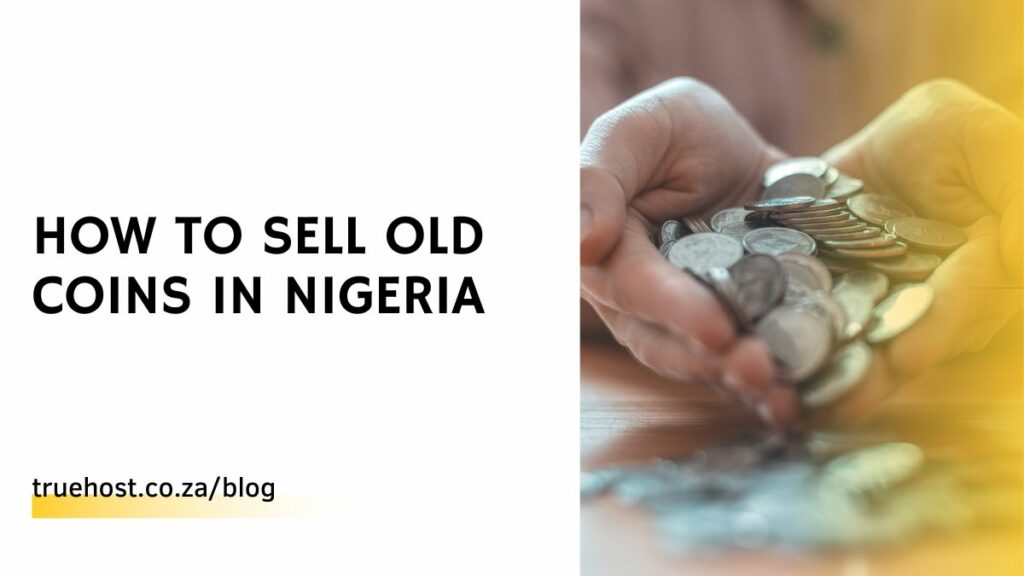Are you wondering how to sell old coins in Nigeria?
Perhaps you’ve stumbled upon a collection of coins that you believe could fetch you a good price.
Selling old coins can be a rewarding endeavor, but it’s important to navigate the process with care to ensure you get the best value for your treasures.
In this guide, we’ll walk you through the steps, share expert tips, and even highlight some rare Nigerian coins that are worth considering.
So, let’s dive in and uncover the world of selling old coins in Nigeria!
Is Selling Old Coins Legal in Nigeria?
First things first, it’s essential to address the legality of selling old coins in Nigeria. According to the Central Bank of Nigeria, it is against the law to sell currency banknotes. However, the situation becomes a bit murkier when it comes to old coins.
The available information doesn’t explicitly mention the legality of selling old coins in Nigeria. Therefore, it’s advisable to proceed with caution and seek guidance from reputable sources before engaging in any transactions involving old coins.
Read also: What Can I Sell In Nigeria To Make Money?
Exploring Your Selling Options
Now that we’ve addressed the legal aspect, let’s delve into the exciting realm of selling old coins.
Fortunately, there are several avenues you can explore to sell your old coins in Nigeria:
1. Coin Dealers: Your Trusted Partners in Coin Sales
Coin dealers are an excellent starting point for selling old coins, especially if you’re dealing with low and medium-value coins. Reputable coin dealers possess a wealth of knowledge about coin valuation and the current market trends. They can offer you a fair price based on the rarity, condition, and demand for your coins. So, if you’re seeking a hassle-free and reliable way to sell your old coins, consider connecting with established coin dealers.
2. Online Exchange Services: Effortless Conversion of Coins to Cash
Embracing the digital age, online exchange services offer a convenient platform to transform your leftover Nigerian Naira coins into cash. These services provide a swift and efficient process, allowing you to sell your coins and receive payment quickly. It’s a great option if you’re looking for a seamless way to liquidate your old coins without leaving the comfort of your home.
3. Online Marketplaces: Showcasing Your Coins to Collectors Worldwide
The online world opens up a vast marketplace for coin enthusiasts and collectors. Platforms like Collectors.com enable you to list your coins for sale or auction. This avenue connects you with potential buyers not only in Nigeria but also from around the globe. As you create listings and interact with interested parties, make sure to provide detailed descriptions and high-quality images to showcase the uniqueness of your coins.
4. Buyers on Forums: Tapping into Community Networks
Online forums such as Nairaland Forum can serve as platforms to find buyers for your old coins. Engaging with fellow collectors and enthusiasts can lead to fruitful connections. However, exercise caution when dealing with buyers on forums. Verify their reputation and ensure they are trustworthy before finalizing any transactions.
5. Silver Coins Buyers and Importers: Exploring Niche Markets
If you possess silver coins, there are specialized buyers and importers in Nigeria. Websites like TradeFord.com can connect you with potential buyers interested in silver coins. Remember to research these buyers thoroughly and verify their credibility before proceeding with any deals.
Navigating the Search for Reputable Coin Dealers in Nigeria
When it comes to selling old coins, finding reputable coin dealers is paramount. Here are some trusted options to consider:
1. Mf Xchange Hub
Mf Xchange Hub stands as a reliable coin dealer in Nigeria, ready to facilitate the buying and selling of coins of various types and values. Their expertise and commitment to fair dealings make them a valuable partner in your coin-selling journey.
2. Mayor Crypto
While Mayor Crypto specializes in cryptocurrencies like Bitcoin and Ethereum, they also engage in buying and selling traditional coins. Their diverse portfolio and reputation in the crypto world translate into a reputable entity to explore for your coin-selling needs.
3. Bigpolo Enterprises
Bigpolo Enterprises offers a platform for trading old and rare coins. With their focus on numismatic treasures, they can provide insights into the value and demand of your old coins, ensuring you receive a fair price.
4. Gomigile
If you’re dealing with gold and silver coins, Gomigile specializes in buying and selling these precious metal treasures. Their expertise in precious metals adds an extra layer of confidence to your coin-selling journey.
5. Collectors.com
Exploring online marketplaces like Collectors.com can connect you with reputable coin dealers not only in Nigeria but also worldwide. The platform’s extensive listings and dealer profiles assist you in finding experts who align with your specific coin collection.
Remember, when searching for reputable coin dealers, rely on reviews, ratings, and recommendations from fellow collectors or dealers. A trustworthy partner ensures a smooth and fair transaction process.
Deciphering the Value of Old Coins
Determining the value of old coins is a nuanced endeavor that involves multiple factors. Here’s what you need to consider:
Rarity Rules: The Rarity Factor
The rarity of a coin significantly impacts its value. Scarcity translates into higher demand, which, in turn, drives up the price. The fewer coins available, the more valuable they become.
Condition Counts: The Role of Coin Condition
Coins in pristine condition fetch higher prices compared to those that are damaged or worn. The appeal to collectors lies in well-preserved coins that showcase intricate details and historical significance.
Historical Significance: Coins with Stories to Tell
Coins tied to significant historical events or notable figures in Nigerian history hold a special place in the hearts of collectors. These coins often command higher prices due to their unique narratives.
How to Evaluate The Value of Old Nigerian Coins
To assess the value of your old Nigerian coins, follow these steps:
1. Identify the Coin: Crack the Coin’s Code
Start by identifying key details about the coin, including its denomination, year of issue, and any distinctive marks. Consult coin catalogs or online resources to aid in accurate identification.
2. Evaluate the Condition: The Grading Game
Utilize a grading scale to determine the coin’s condition. Excellent condition is a strong indicator of higher value. Be thorough in your assessment to accurately gauge the coin’s grade.
3. Research Similar Coins: The Comparative Approach
Browse through recent sales of similar coins on auction sites or online marketplaces. This comparative analysis provides valuable insights into the current market value of your coin.
Remember, gathering multiple opinions on your coin’s value, maintaining patience throughout the selling process, and engaging with reputable dealers are key to securing a fair price for your old coins.
Showcasing Rare Nigerian Coins Worth Selling
Some rare Nigerian coins are truly gems in the world of numismatics. Consider these noteworthy examples:
1. Nigerian 1959 Penny: Bronze Beauty
Crafted from bronze, the Nigerian 1959 Penny is a sought-after rarity minted in 1959. Its scarcity and historical significance contribute to its allure among collectors.
2. Nigerian 1963 Half Crown: Silver Elegance
The Nigerian 1963 Half Crown, made of silver and minted in
1963, boasts both precious metal value and historical resonance. Its unique combination makes it a prized addition to coin collections.
3. Nigerian 1965 10 Shillings: Silver Charm
Another silver marvel, the Nigerian 1965 10 Shillings, is a treasure minted in 1965. Its composition and limited availability contribute to its desirability among collectors.
4. Nigerian 1973 50 Kobo: Copper-Nickel Rarity
A copper-nickel rarity from 1973, the Nigerian 1973 50 Kobo coin is known for its distinct composition and historical significance, rendering it a valuable find.
5. Nigerian 1976 10 Kobo: A Copper-Nickel Treasure
The Nigerian 1976 10 Kobo coin, made of copper-nickel and minted in 1976, presents collectors with another opportunity to own a piece of Nigerian numismatic history.
The Art of Properly Storing and Maintaining Rare Nigerian Coins
Preserving the condition and value of rare Nigerian coins demands careful attention. Here’s how to do it right:
1. Invest in Quality Storage: Shielding from Environmental Elements
Opt for coin storage boxes or display cases designed to protect against moisture, dust, and air exposure. These safeguards prolong the longevity of your coins.
2. Handle with Care: Delicate Touch
When handling rare coins, use cotton gloves or handle them by their edges to prevent fingerprints and potential damage. Treat them like the delicate artifacts they are.
3. Avoid Over-Cleaning: Gentle Care
Resist the urge to clean coins excessively. Cleaning can harm the coin’s surface and diminish its value. If needed, use a lint-free cloth for gentle cleaning.
4. Choose the Right Storage Materials: The Material Matters
Steer clear of storage materials made from PVC, as they can degrade and damage coins over time. Opt for acid-free plastics like polypropylene or polyester for coin holders and sleeves.
5. Control the Storage Environment: Temperature and Humidity Control
Maintain a stable storage environment with moderate temperature and humidity levels. Extremes can harm the coins. Avoid storing them in moisture-prone areas.
6. Shield from Light: Darkness Is Your Ally
Direct sunlight and harsh light can cause discoloration. Store coins in a dimly lit or dark environment to preserve their surfaces.
7. Regular Inspection and Maintenance: Vigilance Pays Off
Periodically assess your coin collection for signs of damage or deterioration. If you spot any issues, seek advice from professional coin dealers or conservators.
In adhering to these practices, you safeguard the beauty and value of your rare Nigerian coins for generations to come.
In Conclusion
Selling old coins in Nigeria is a journey rich with possibilities. From identifying reputable dealers to understanding the factors that influence coin value, you’ve uncovered a world where history, craftsmanship, and financial reward intersect.
So, whether you’re venturing into the realm of coin selling for the first time or are a seasoned collector seeking to part with treasures, this guide equips you with the knowledge to navigate the process with confidence.
Remember, as you embark on your coin-selling adventure, embrace the joy of sharing these pieces of history with fellow enthusiasts while reaping the rewards of your numismatic endeavors. Happy coin selling!
Related:


